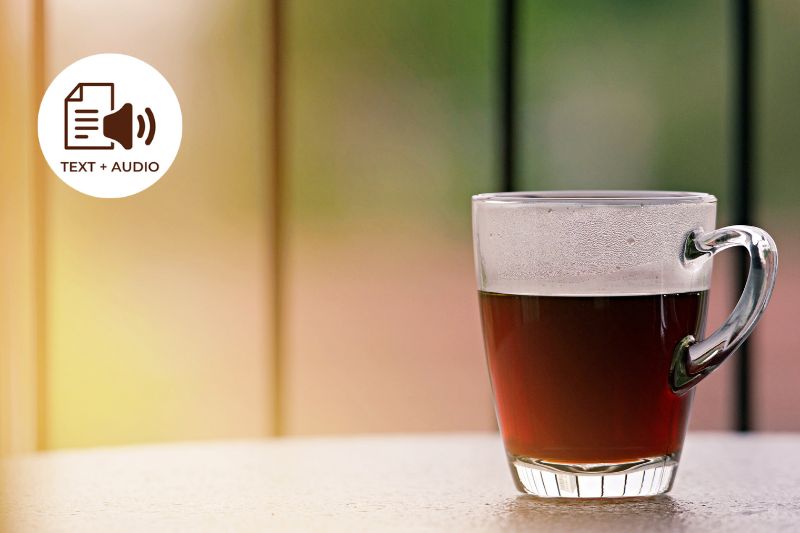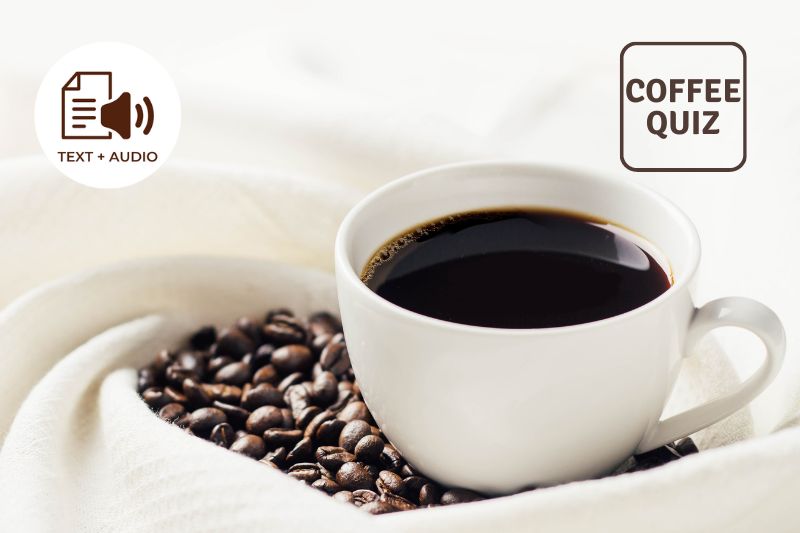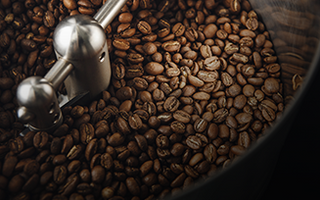There is a lot of misinformation and myths regarding caffeine out there so today I am going to tackle the subject and answer the most common questions you might have regarding the subject.
I hope that after reading this article you will be able to make more educated choices regarding your caffeine intake and that you will enjoy your coffee at ease.

I wrote a similar article on my green tea blog, and the article has been pretty popular, so I wanted to write about coffee one. Here is the green tea version if you are interested!
- What is caffeine?
- What does caffeine do to your body?
- Is caffeine good or bad for you?
- Why does coffee have caffeine?
- How much caffeine is in regular coffee?
- What factors affect caffeine content?
- How long do the caffeine effects of coffee last?
- Why does one feel hungrier after caffeine?
- Can drinking coffee make you tired?
- What is the right time of day to drink coffee?
- Does caffeine in coffee help individuals lose weight and how?
- Is there coffee that has low caffeine but is not decaffeinated?
- Is decaffeinated coffee as good as regular coffee?
- Is coffee's caffeine different from tea's caffeine?
- Compared to coke, how much caffeine is in coffee?
- What happens if an individual mixes coffee with alcohol?
- How does temperature affect caffeine’s solubility and absorption?
- How do you cancel out too much caffeine?
- What are some of the many variables that can affect coffee’s caffeine levels?
- How much caffeine can we ingest safely?
- What are the risks of consuming too much caffeine?
- Can the overuse of coffee cause you to see things?
- Will having decaffeinated coffee keep me alert and have the same effect as having regular coffee?
- Can coffee boost your mood and help in type 2 diabetes?
1. What is Caffeine?
Pure caffeine is a white, odorless powder that can be obtained from various plants or synthetically. Caffeine is contained in over 60 plants, including the coffee plant, the tea plant, the mate tree and the kola nut. The caffeine is mainly stored in seedlings to keep pests away, to numb or even to kill them.

Pure caffeine was obtained from coffee beans for the first time in 1819. Friedrich Ferdinand Runge, a German chemist, was one of the first to isolate caffeine from coffee beans. Runge is therefore considered to be the discoverer of caffeine.
2. What Does Caffeine Do to Your Body?
Caffeine is a stimulant that improves concentration after consumption, helps against fatigue and also increases the absorption capacity of the brain.
But caffeine not only increases mental performance, according to various studies it is also said to promote endurance and muscle strength when exercising.
Caffeine works quickly and effectively because it passes almost completely into the blood. Adenosine receptors play an important role in the mode of action. Adenosine is released by our body when we use a lot of energy.
It docks to special receptors and ensures that cells work less. As soon as the adenosine level in the blood is very high, we feel tired and exhausted. As a so-called inverse agonist, caffeine blocks the adenosine receptors without activating them.
As a result, the cell does not receive the information that it should work less and we feel more awake for longer and are more concentrated.
3. Is Caffeine Good or Bad For You?
Caffeine is not bad for you if you consume a normal amount. According to the European Food Safety Authority, 200 mg of caffeine per single dose and 400 mg per day are safe for humans. Children should consume a maximum of 3 mg of caffeine per kilogram of body weight.

Those who consume too much caffeine can suffer from the consequences of a caffeine overdose. Doctors speak of an overdose of one gram or more of caffeine. This corresponds to 15 to 20 cups of espresso. Symptoms include:
- Sleep disorders
- Restlessness
- Headache
- Nervousness
- Panic attacks
- Gastrointestinal complaints
- Circulatory collapse
Some of the symptoms don't even require an overdose - they can occur with excessive consumption. However, due to the aforementioned habituation effect, this is usually harmless, so that many people can tolerate several cups of coffee in a row.
4. Why Does Coffee Have Caffeine?
Caffeine is contained in over 60 plants, including the coffee plant. The caffeine is mainly stored in seedlings to keep pests away, to numb or even to kill them, so it’s like a defense mechanism of the coffee plant.
5. How Much Caffeine is in Regular Coffee?
Let’s take a look at the two most common coffee types: espresso and filter coffee.
Espresso - If you use 10 g of coffee in 25 - 40 ml of water and an extraction time of 24 to 30 seconds, the caffeine content of an espresso is on average approx. 30 mg. This is for a single shot of espresso.
Filter coffee - With filter coffee, there is around 12 g of ground coffee for every 200 ml beverage volume. The caffeine content here is around 160 mg after an extraction time between 120 and 240 seconds. This amount would fill up one coffee mug.
6. What Factors Affect Caffeine Content?
The exact amount of caffeine in a cup ultimately depends on the following factors: the type of coffee beans it contains, the amount of coffee used and the amount of water used.
When enjoying a cup of filter coffee, we consume more caffeine than with an espresso. The caffeine content depends entirely on how the coffee drink is prepared: the longer the coffee powder and water are in contact, the more caffeine can be flushed out.

And in the end, the more caffeinated the drink is. Coffee capsules of the same type always contain the same amount of coffee powder - and therefore also of caffeine.
If you prepare an espresso with the capsule, it has a lower caffeine content than a Caffè Lungo from the same capsule due to the shorter extraction time.
7. How Long Do the Caffeine Effects of Coffee Last?
By drinking coffee, we ingest caffeine, which attaches to receptors in the cerebrum that are responsible for our activity. This then simulates increased performance.
The caffeine reaches the bloodstream 10 to 40 minutes after ingestion. If you notice a direct effect, it is a placebo effect. Degradation and excretion are then complete after about 4 hours.
8. Why Does One Feel Hungrier After Caffeine?
Like mentioned above, caffeine blocks adenosine receptors. This leads to a reduced ability to taste sweet things. The result is that you develop a craving for sweets more and more often.
You finally want to taste something sweet again. But the hunger for sweetness - after enjoying coffee - is simply no longer so easy to satisfy and you want more sweet things than would be the case without coffee.
9. Can Drinking Coffee Make You Tired?
For many people, a cup of coffee in the morning is a fixed ritual and a kind of magic drink that is supposed to help them start the day awake and focused. But this does not always work out as hoped. On some days the opposite seems to happen. This can be due to the following reasons:
- Very little sleep - The caffeine in coffee only has the desired effect if you get enough sleep. Unfortunately, the best and strongest coffee won't help if you don't allow your body enough rest and relaxation.
- Not drinking enough water
- Drinking coffee during the wrong time of the day
10. What is the Right Time of Day to Drink Coffee?
What time of day you have coffee plays an important role. This is where cortisol comes into play, a stress hormone that regulates blood sugar levels and ensures that the body has sufficient energy available when it is needed.
In a sense, when you drink coffee, cortisol prevents the caffeine from being absorbed to protect the body. The concentration of the stress hormone is higher at certain times of the day, for example shortly after getting up, because the metabolism is stimulated in sunlight.

About two hours after getting up, however, the cortisol level drops again. This would be the best time to have a coffee. The times of the day around 2 p.m. and 7 p.m. are also recommended. You should avoid coffee three hours before bed to prevent sleep problems.
11. Does Caffeine in Coffee Help Individuals Lose Weight and How?
So how does coffee help you lose weight? Coffee really boosts your metabolism and caffeine is responsible for this. Scientific studies have shown that caffeine promotes fat burning (lipolysis).
Lipolysis ensures that both food and body fat are broken down into their individual components and used to supply the body with energy. Caffeine also increases heat production (thermogenesis) and thus energy consumption.

This increases your basal metabolic rate and the body uses more calories than without caffeine (approx. 50 to 100 kcal per day in addition). Thanks to this, you can lose some weight with coffee.
But don’t get the idea of drinking several cups of coffee in a row. With too much coffee, the body gets used to the effect and nothing happens anymore. Also as we mentioned above it might have negative effects for your health.
12. Is There Coffee That Has Low Caffeine But is Not Decaffeinated?
If you are looking for low-caffeine coffee, but don't want to drink decaffeinated coffee, I advise you to choose coffees from Central America, South America and the Caribbean.
These single-origin Arabica coffees all have a lower caffeine content than other Arabica coffees. If you assume a range of 0.8% to 1.4% caffeine content in Arabica, these coffees are among those with a low natural caffeine content.
13. Is Decaffeinated Coffee as Good as Regular Coffee?
There are many different reasons for choosing decaffeinated coffee: intolerance, high blood pressure, pregnancy, fear of not being able to sleep, etc. They all have one thing in common: not wanting to do without the taste or the feeling of drinking coffee.
Thankfully these days there are processes like the Liquid Dicarboxylic Acid Caffeine Extraction that ensure even though decaffeination takes place, the coffee maintains its original aroma and flavour. If you wish to know more about decaf coffee and the decaffeination process, don’t miss out our article about it.
14. Is Coffee's Caffeine Different From Tea's Caffeine?
If you like to drink tea and coffee, you have probably noticed that the two drinks have different effects. There are several reasons for this. We have summarized six important facts about the effects of caffeine of both:
- The caffeine content in the coffee bush, tea bush and mate bush is different and also varies from plant to plant.
- A cup of tea contains less caffeine (teein) than a cup of coffee. This is due to the dose: You brew significantly fewer tea leaves for a cup of tea than coffee beans for a cup of coffee.
- The caffeine content in tea is related to its steeping time. Black and green tea contain around 20 milligrams of caffeine after one minute and around 33 milligrams of caffeine in 100 milliliters of water after five minutes.
- Tea has a calming effect. The longer the tea brews, the more tannins dissolve. These have a calming effect on digestion.
- L-theanine is an amino acid that occurs naturally in tea. It should have a relaxing effect. L-theanine is not found in coffee.
- There are various antioxidants in tea. These can trap free radicals in our body and thus protect us against diseases. They are also supposed to cause the caffeine to be absorbed slowly and evenly in the blood. Therefore, Teein (caffeine in tea) should work less quickly, but the invigorating effect should last longer.
Please check this article I wrote about green tea and caffeine if you are interested in more about tea caffeine.
15. Compared to Coke, How Much Caffeine is in Coffee?
The front runner when it comes to caffeine is coffee! Sweet soft drinks such as cola or energy drinks cannot compete here. Significantly higher quantities have to be consumed in order to achieve a similarly high caffeine content. One cup of black coffee (150 ml) corresponds to the caffeine content of a 1.2l cola or a 375 ml energy drink.
16. What Happens if an Individual Mixes Coffee With Alcohol?
Drinking coffee and then having an alcoholic drink soon after is not a good idea. Like I said above, coffee has the ability to make us more alert by suppressing the adenosine levels in our brain. Alcohol on the other hand is trying to do the opposite.
So what actually happens is that by keeping us alert, coffee makes us think we are not intoxicated and that we can handle more alcohol while this is not true. Mixing coffee with alcohol is definitely not a good habit.
17. How Does Temperature Affect Caffeine’s Solubility and Absorption?
One of the most important factors in determining caffeine’s solubility and absorption is temperature. As the temperature increases so does caffeine’s solubility and absorption rate. Caffeine is more soluble at higher temperatures than at lower temperatures, which means it can be absorbed faster as well.
For example, at 194°F (90°C), caffeine is 100% absorbed in under 10 minutes. But at 149°F (65°C) it takes 60 minutes for caffeine to be absorbed. The influence of temperature on the solubility of caffeine is also important. When the temperature increases, so does the amount of caffeine that can dissolve into solution before reaching saturation.
This means that more caffeine can be dissolved in a hot beverage than in a cold beverage. In addition, when caffeine is added to a hot drink, it dissolves much faster than when it is added to a cold drink. So the hot drink will have more caffeine.
The main reason why increasing the temperature increases the solubility and absorption is that there are “more molecules moving around”. The thermal motion of caffeine molecules allows more of them to bump into each other and dissolve in water.
18. How Do You Cancel Out Too Much Caffeine?
The effects of caffeine depend on the person's age, size, health status, gender, use of other substances or medications or even what they eat or drink with their caffeinated beverages. Caffeine can have many different effects on people from increased alertness to difficulty concentrating to irritability to muscle tremors to insomnia.
There are many different ways to cancel caffeine once you've had too much of it. One way is by gradually reducing the amount of caffeine you consume every day. Another way is by drinking decaf coffee or tea instead of caffeinated beverages. It's also possible to drink water with lemon or lime juice in order to restore the balance of your body fluids that have been depleted due to too much caffeine consumption. You could also try doing a detox cleanse to clear the caffeine from your system.
19. What are Some of the Many Variables That Can Affect Coffee’s Caffeine Levels?
When it comes to coffee, caffeine levels can vary from bean to bean. However, the coffee to water ratio is one of the most influential variables. How the beans are grown, harvested, roasted, and ground also affects caffeine levels.
The amount of coffee grounds, the coffee to water ratio, and the variety of coffee beans used can all have an effect on a cup of coffee’s caffeine levels. Robusta has naturally more caffeine than Arabica, so it is important to know if you are using a Robusta bean.
Caffeine content can vary according to 2% - 10% of its initial value. A study shows that caffeine in coffee beans is reduced by 7%-to-9% over the course of a year, making it important to know how long coffee has been sitting.
Some other variables that can affect caffeine levels include what time of the day you consume your coffee, the age of the beans and which brewing method you are using to make your coffee. Cold brew, for example, usually has more caffeine than a cup of coffee made with boiling water if the water quantity is the same, because you need more coffee to make it.
20. How Much Caffeine Can We Ingest Safely?
In moderate amounts caffeine is safe for adults. But too much caffeine can cause unpleasant side effects such as anxiety, sleeplessness and heart palpitations. The recommended daily intake of caffeine for adults is 400mg or two cups of coffee a day. This is about 4mg per kilogram of body weight, so it will vary depending on your size. As far as ingestion goes this is about the limit that you can consume safely. Crossing that limit can be dangerous for some people because it increases the risk of serious effects such as anxiety, sleeplessness and heart palpitations.
21. What are the Risks of Consuming Too Much Caffeine?
The amount of caffeine varies depending on the product and the individual's sensitivity to caffeine. Caffeine can affect people differently depending on their size and weight, age, general health conditions such as anxiety or depression, and whether they are taking certain medications.
Plus, consuming too much caffeine can lead to addiction and withdrawal symptoms. Too much caffeine can cause addiction by increasing dopamine levels in the brain which causes a person to want more caffeine because they have developed a tolerance to it. Withdrawal symptoms may include:
- Nausea
- Vomiting
- Headaches
- Anxiety
- Insomnia or trouble sleeping
- Increased heart rate or palpitations
22. Can the Overuse of Coffee Cause You to see Things?
Caffeine is a stimulant that can have a variety of effects on your body. You may experience increased energy, feelings of euphoria, and increased alertness. In addition, it can cause you to feel jittery and anxious. The amount of caffeine in your system will affect the way that you feel. If you drink too much coffee or other caffeinated drinks, your nervous system can become overactive which could cause hallucinations or delusions.
This is because caffeine is a psychoactive drug that affects the central nervous system. The nervous system is very delicate and too much stimulation can cause an unpleasant reaction. Hallucinations are the result of too much stimulation of the brain's visual processing center. The effect is similar to having an extremely vivid dream while awake.
23. Will Having Decaffeinated Coffee Keep Me Alert and Have the Same Effect as Having Regular Coffee?
Decaffeinated coffee is probably the second most popular beverage in the world after regular coffee. It's a drink favored by people who want to get their caffeine fix without the jitters and crashes that come from drinking caffeinated beverages. However, there is some disagreement about whether decaffeinated coffee has the same effect as caffeinated coffee.
Coffee beans contain caffeine, which is a stimulant that keeps you awake and alert. Decaf coffee beans are processed in a way that does not remove all of the caffeine. So it's possible that decaf coffees still have some of this stimulant in them, meaning they could have a similar effect on your body as caffeinated coffees do. But many people report feeling less energetic after drinking decaf coffee than after drinking regular coffee, which suggests decaffeinated coffee may not have the same effect.
Different studies come to different conclusions about whether caffeine in decaf coffee is enough to make you feel more alert. In general, decaffeinated coffee contains much less caffeine than regular caffeinated coffee but it also depends on the individual that is drinking the beverage and how sensitive they are to any caffeine intake.
24. Can Coffee Boost Your Mood and Help in Type 2 Diabetes?
Type 2 diabetes is a chronic condition that affects the way your body uses insulin. It's caused by high blood sugar levels over a period of time, which can lead to serious health problems if left untreated.
Mood-boosting coffee could improve symptoms of type 2 diabetes, according to scientists. Researchers at Coventry University and the University of Limerick found that caffeine may regulate the release of insulin and normalize glucose levels.
The results, published in Diabetes Care, suggest that drinking two to three cups of coffee a day may help to alleviate type 2 diabetes symptoms. However, the caffeine also induces anxiety in some people and participants consumed caffeine an hour before taking part in the study.
Type 2 diabetes is a metabolic disorder that occurs when the body cannot effectively use insulin, which leads to high levels of blood sugar. The researchers also found that caffeine has the potential to boost cognitive function in people with diabetes, who often report difficulties concentrating and becoming easily distracted.
Final Thoughts
So these are some of the most common questions one might have about coffee in relation to its caffeine content.
I hope the article has helped resolve some of your questions and that now you have a better idea of how much caffeine is right for you and when you can consume it. I am always happy to receive any questions you might have!
Get Free Bonus Books

Sign up for free to the Coffee Club to get advice and exclusive articles about how to choose Japanese Coffee, and tips, tricks, and recipes for enjoying Japanese coffee.
About the author
Kei Nishida
Author, CEO Dream of Japan
Certification: PMP, BS in Computer Science
Education: Western Washington University
Kei Nishida is a passionate Japanese tea and coffee connoisseur, writer, and the founder and CEO of Japanese Coffee Co. and Japanese Green Tea Co., both part of Dream of Japan.
His journey began with a mission to introduce the world to the unparalleled quality of Japanese green tea. Through Japanese Green Tea Co., he established the only company that sources premium tea grown in nutrient-rich sugarcane soil—an innovation that led to multiple Global Tea Champion awards.
Building on this success and his passion for Japanese craftsmanship, Kei expanded into the world of coffee, pioneering the launch of Japanese Coffee Co., the first company to bring Sumiyaki charcoal-roasted coffee to a global audience. His dedication to authenticity and quality ensures that this traditional Japanese roasting method, once a well-kept secret, is now enjoyed worldwide.
Beyond tea and coffee, Kei has also introduced Japan’s legendary craftsmanship to the world through Japanese Knife Co., making handmade katana-style knives—crafted by a renowned katana maker—available outside Japan for the first time.
Kei’s journey continues as he seeks out and shares the hidden treasures of Japan, one cup and one blade at a time.
Learn more about Kei


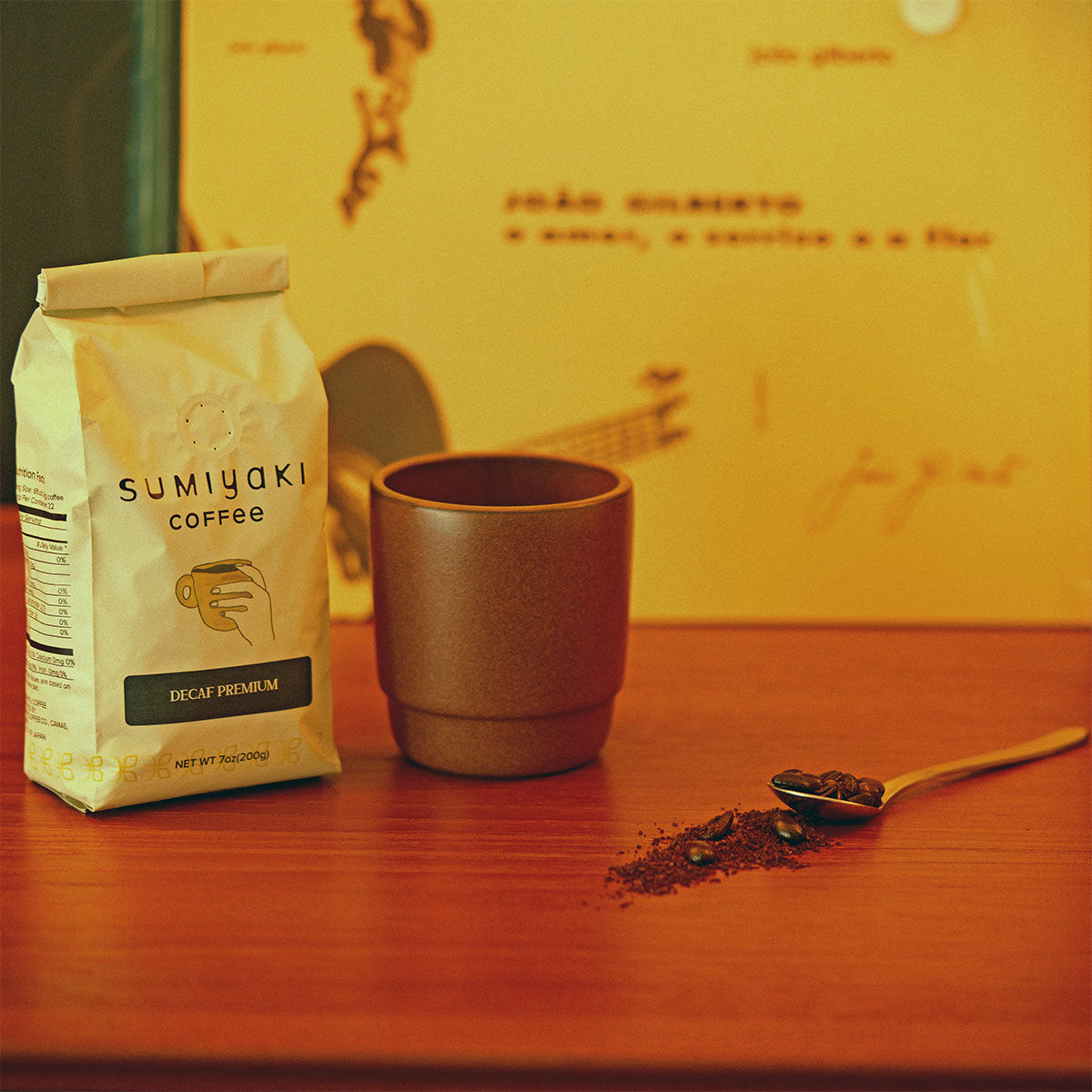
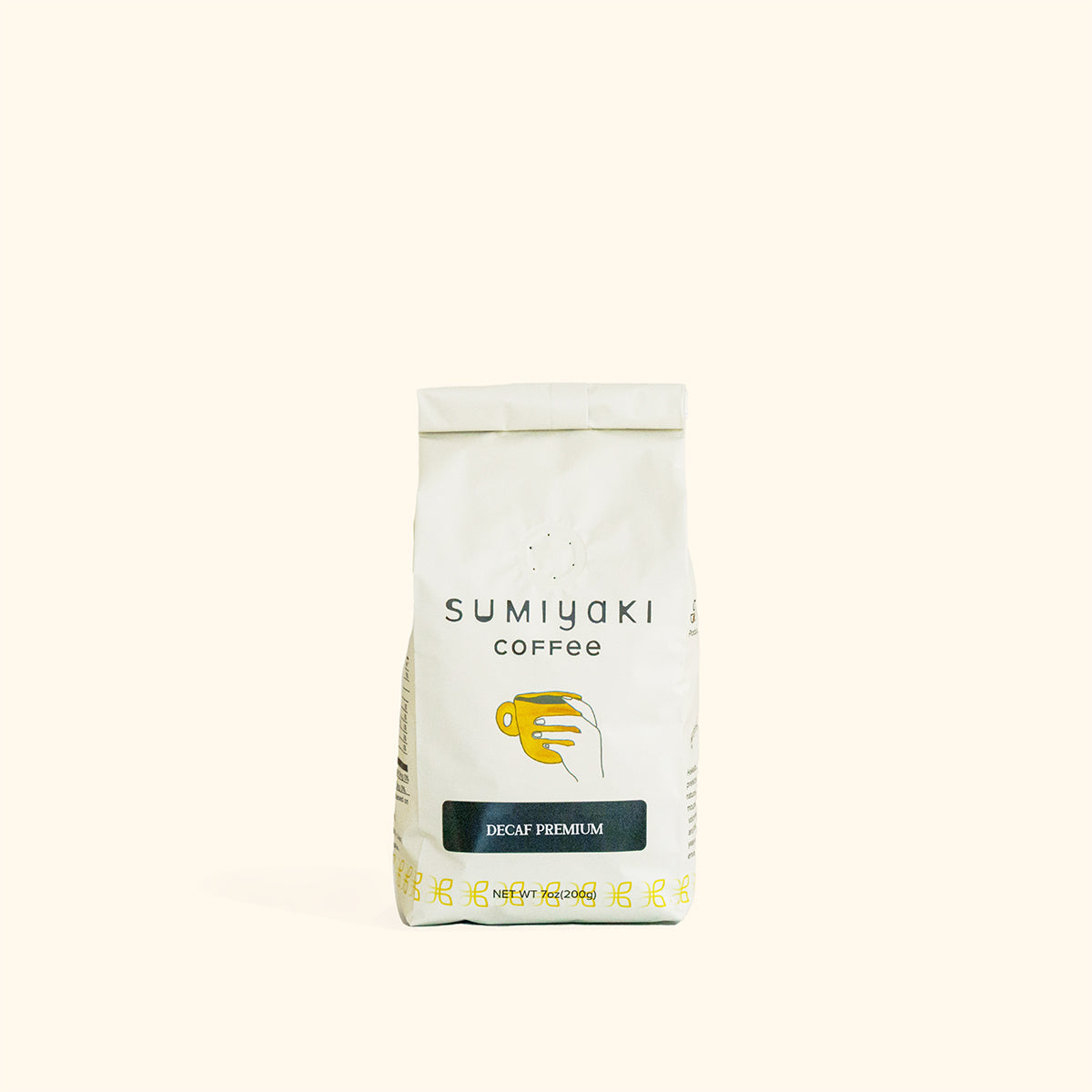
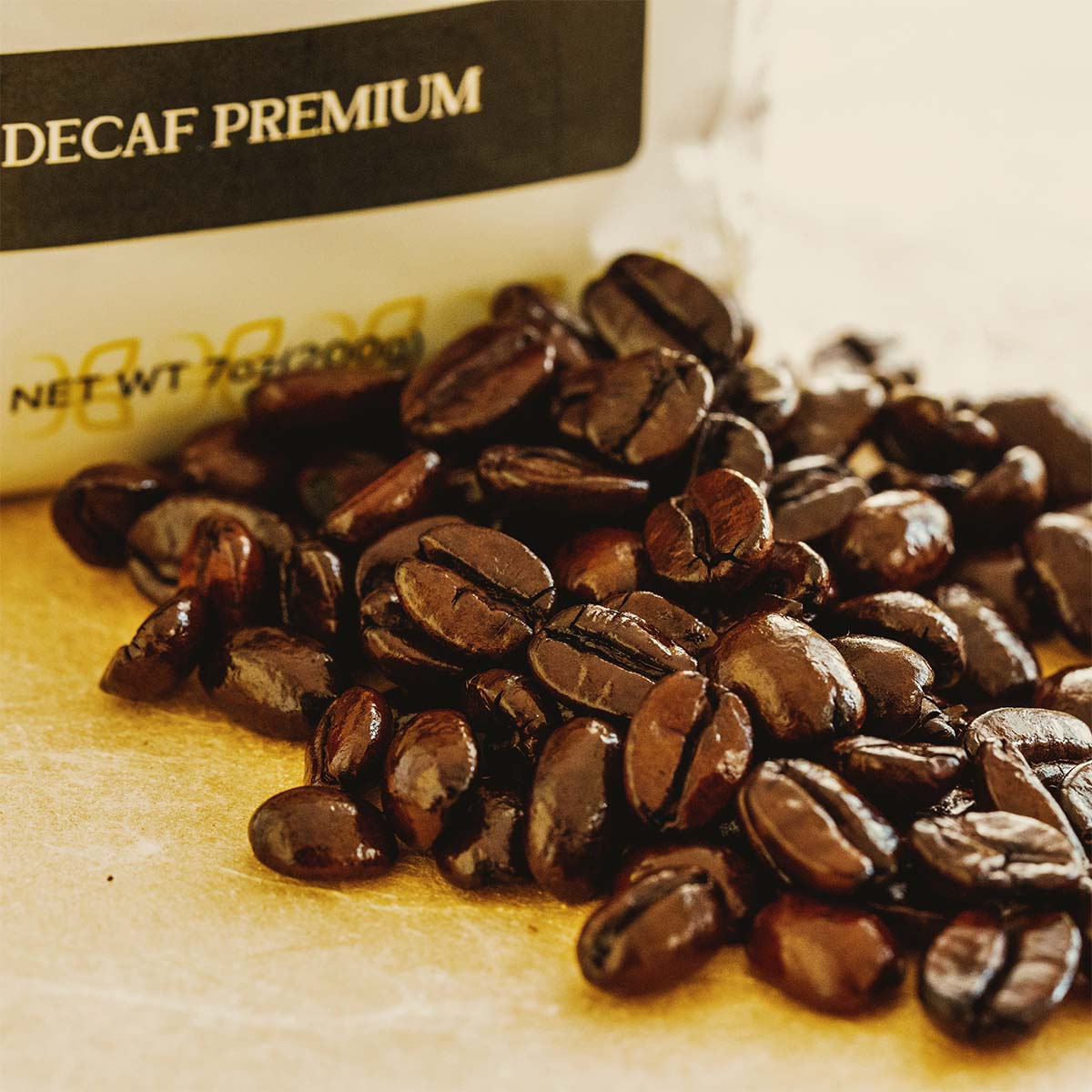

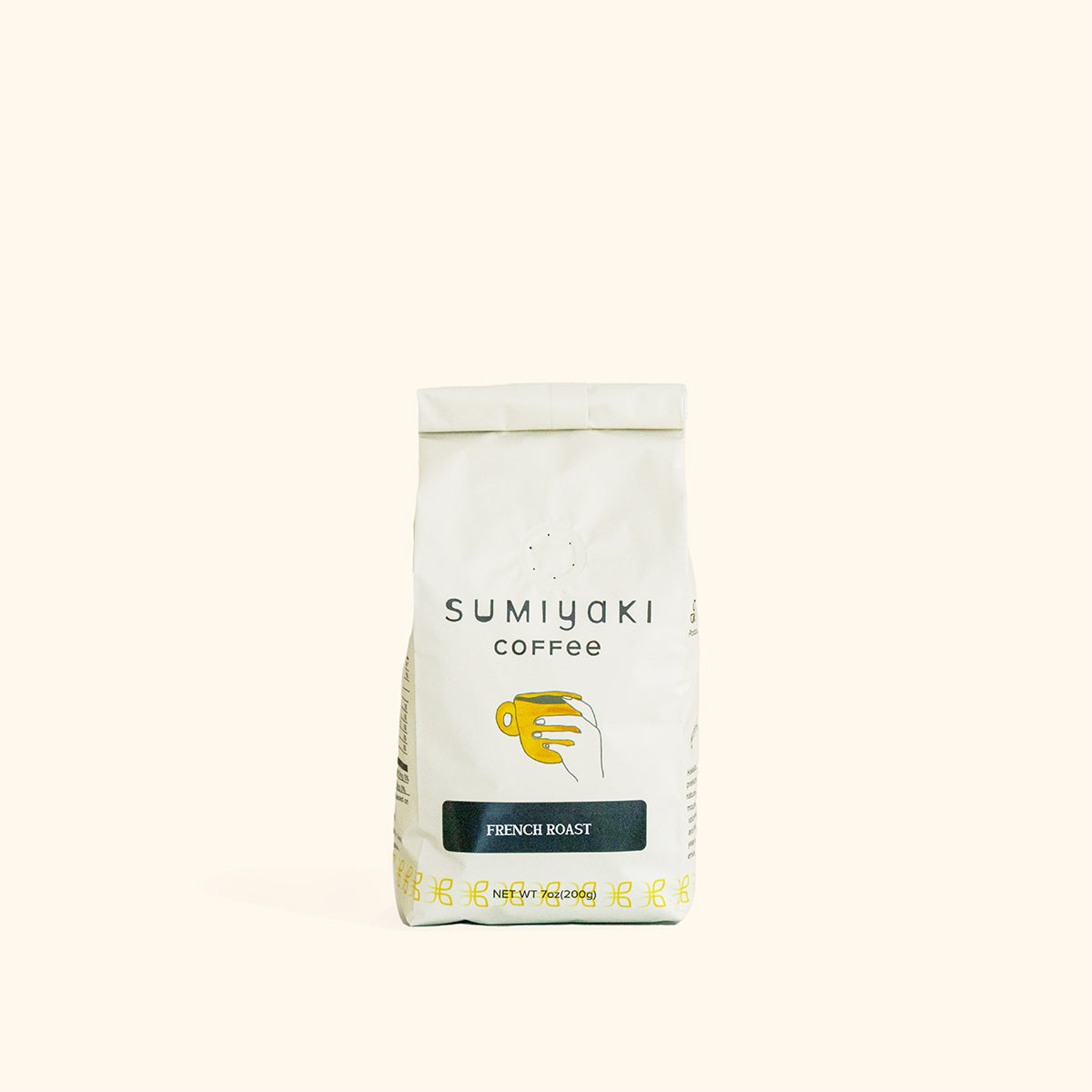
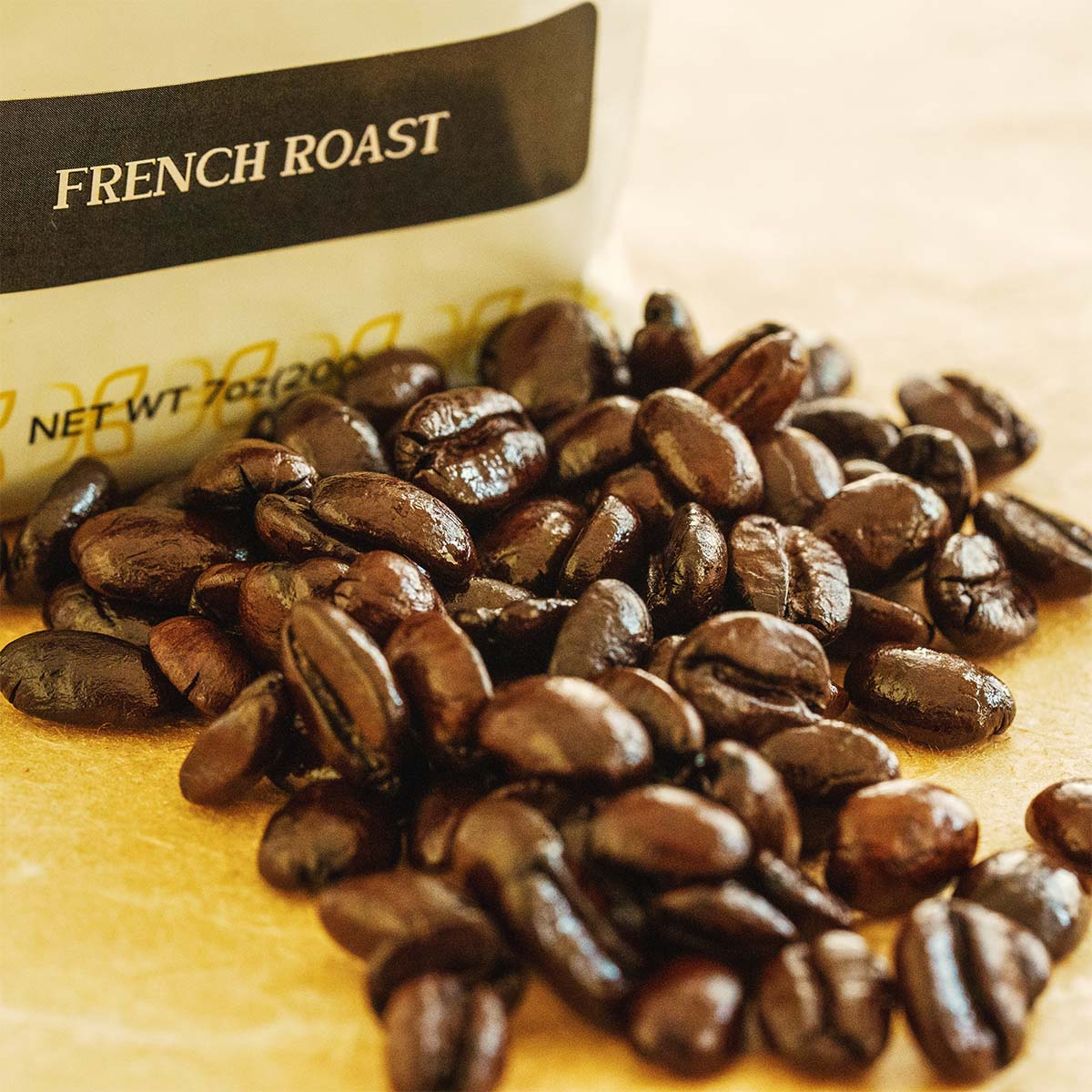


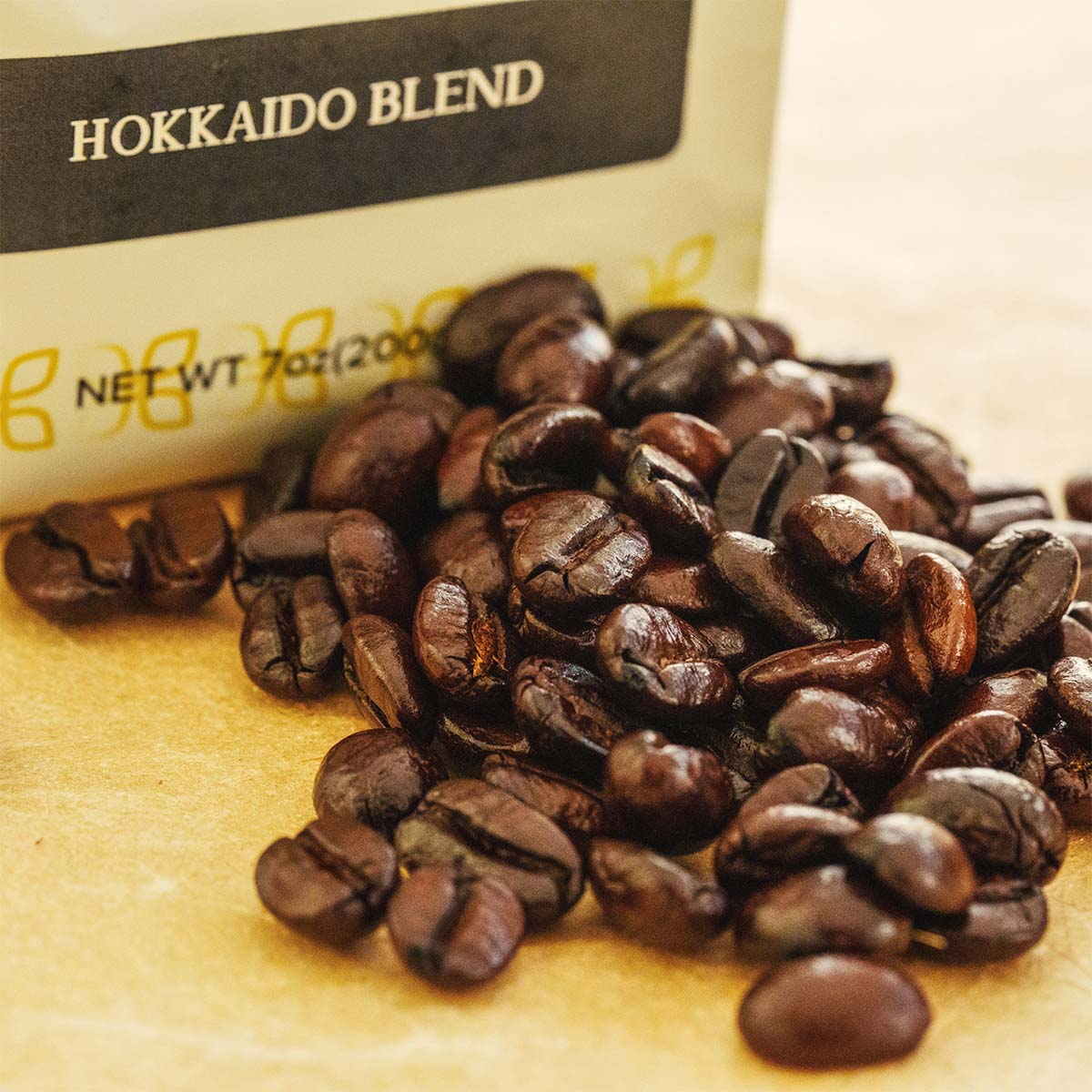
![Asa Tsuyu Blend [Light Blend] Coffee (Colombia, Brazil, Ethiopia)](http://japanesecoffeeco.com/cdn/shop/files/web-ready_Asa_Tsuyu_Blend_life-style.jpg?v=1754689231)
![Asa Tsuyu Blend Package [Light Blend] Coffee (Colombia, Brazil, Ethiopia)](http://japanesecoffeeco.com/cdn/shop/files/AsaTsuyuBlendpackage.jpg?v=1754689220)
![Asa Tsuyu Blend [Light Blend] Coffee Beans (Colombia, Brazil, Ethiopia)](http://japanesecoffeeco.com/cdn/shop/files/AsaTsuyuBlendcoffeebeans.jpg?v=1754689220)

